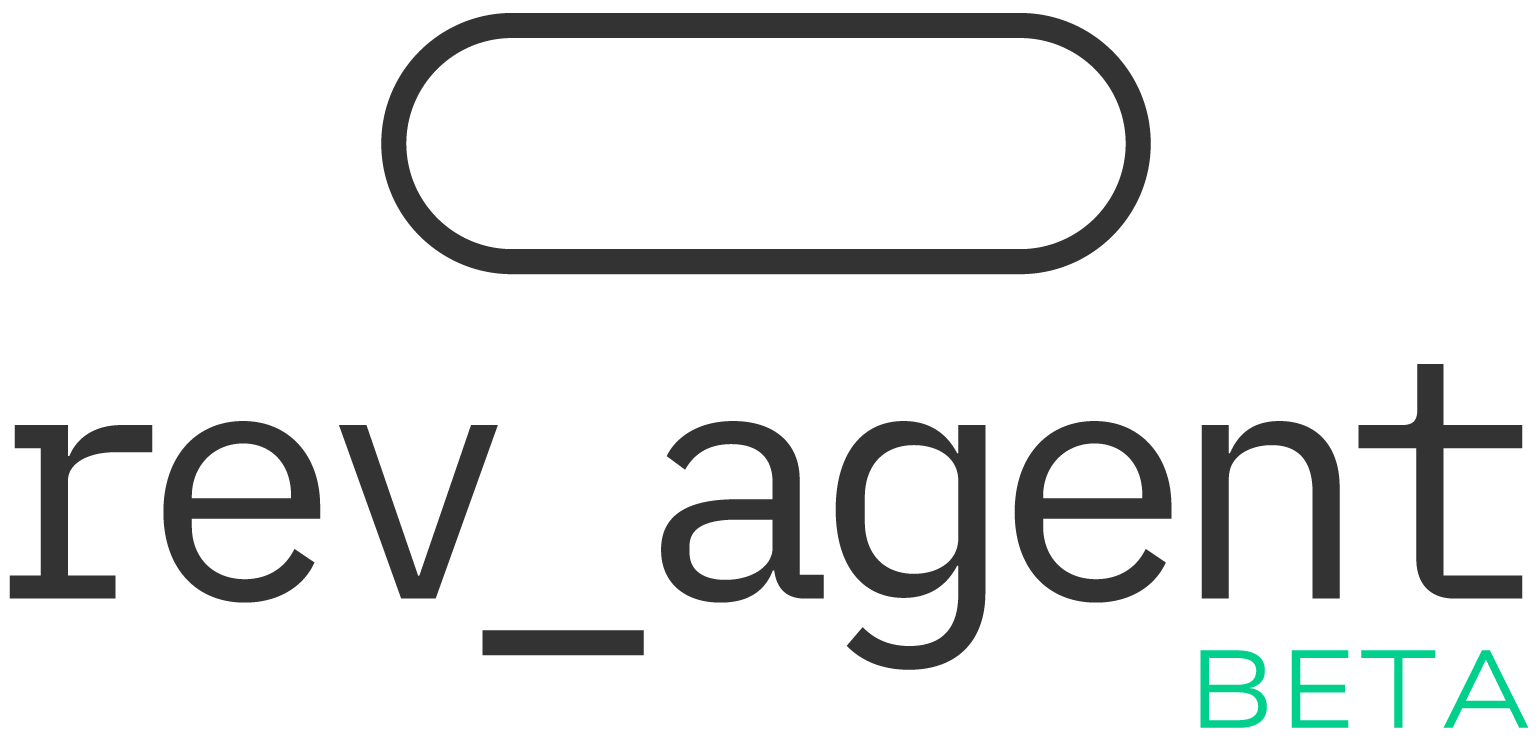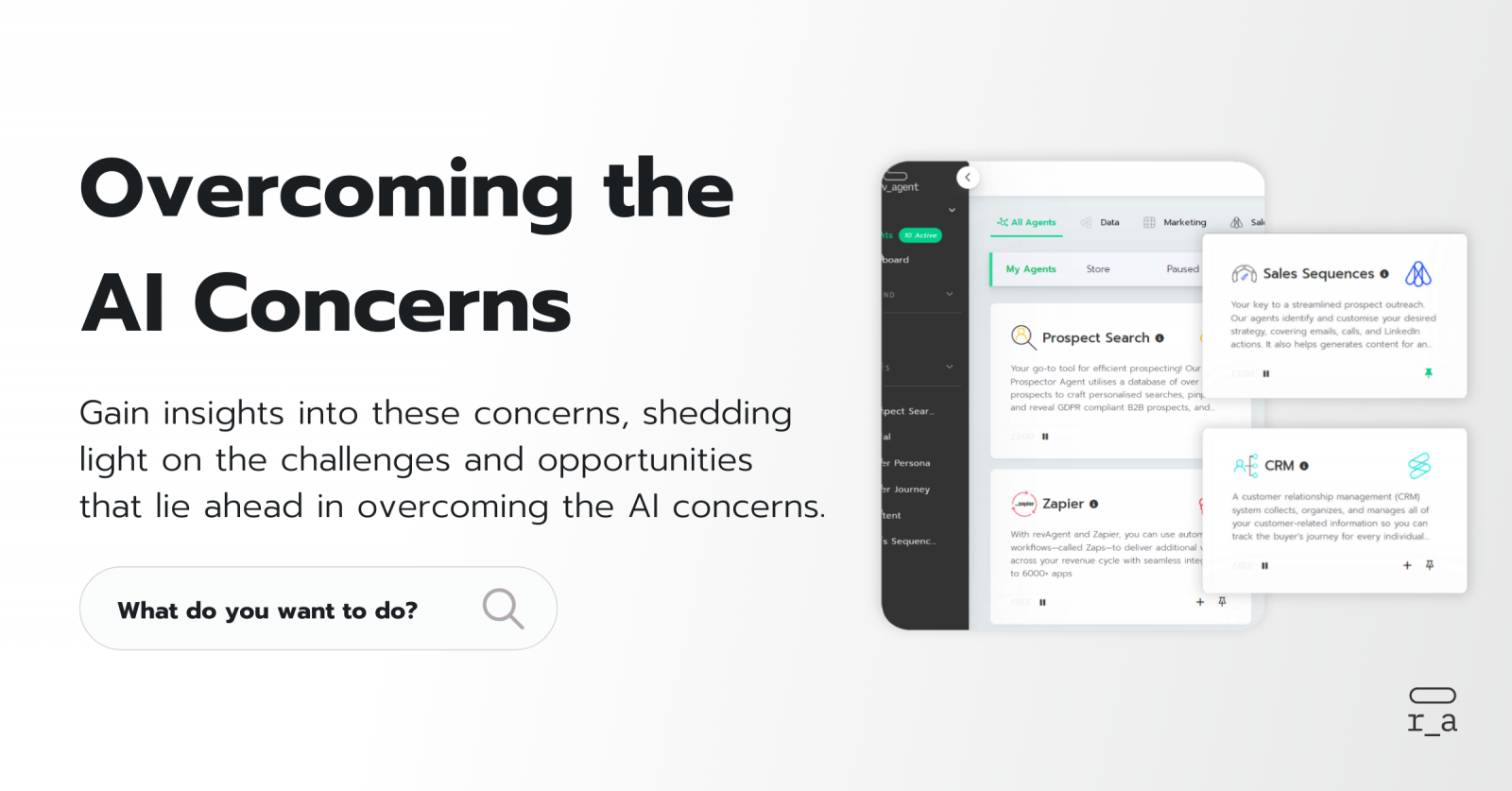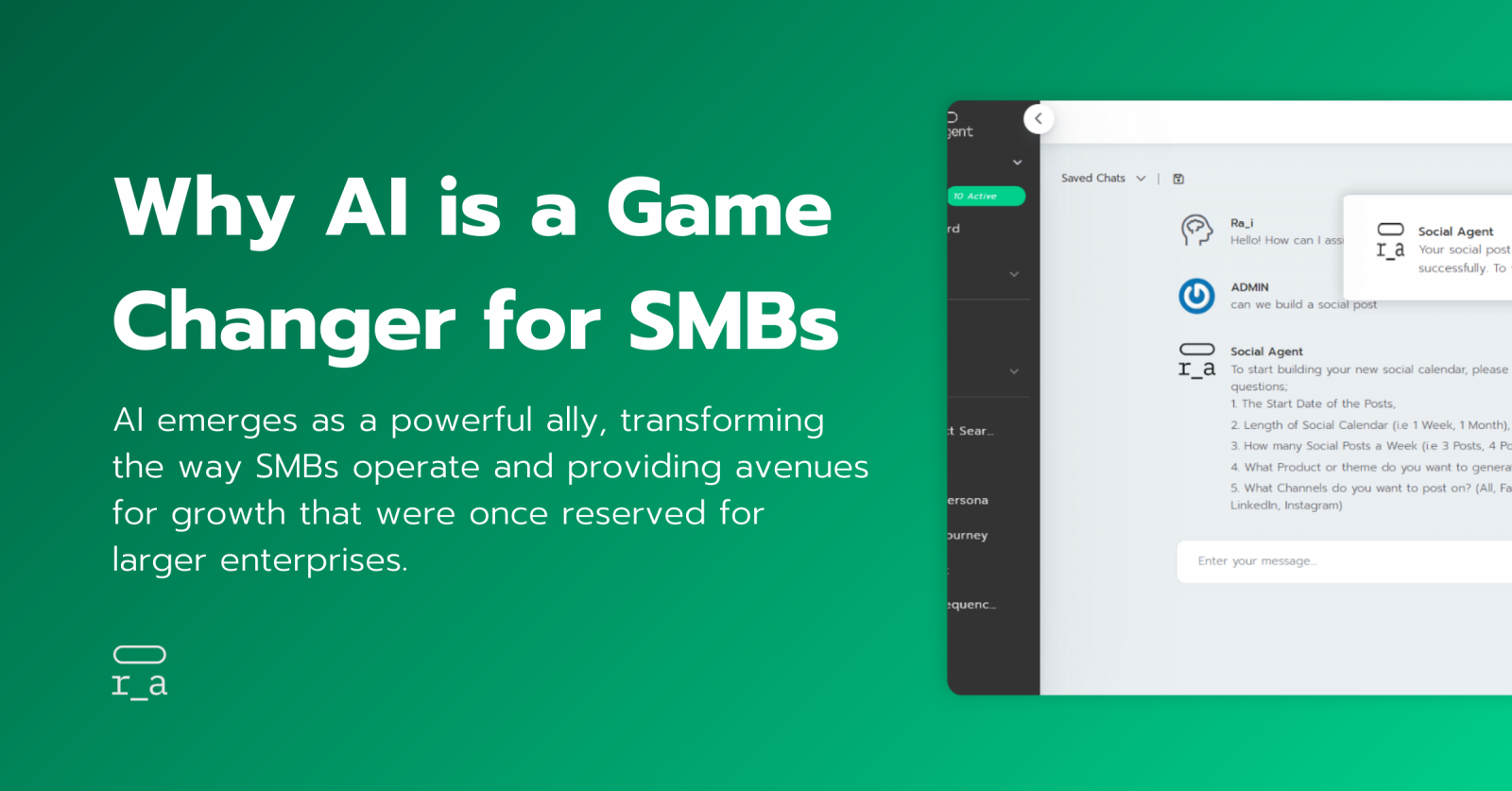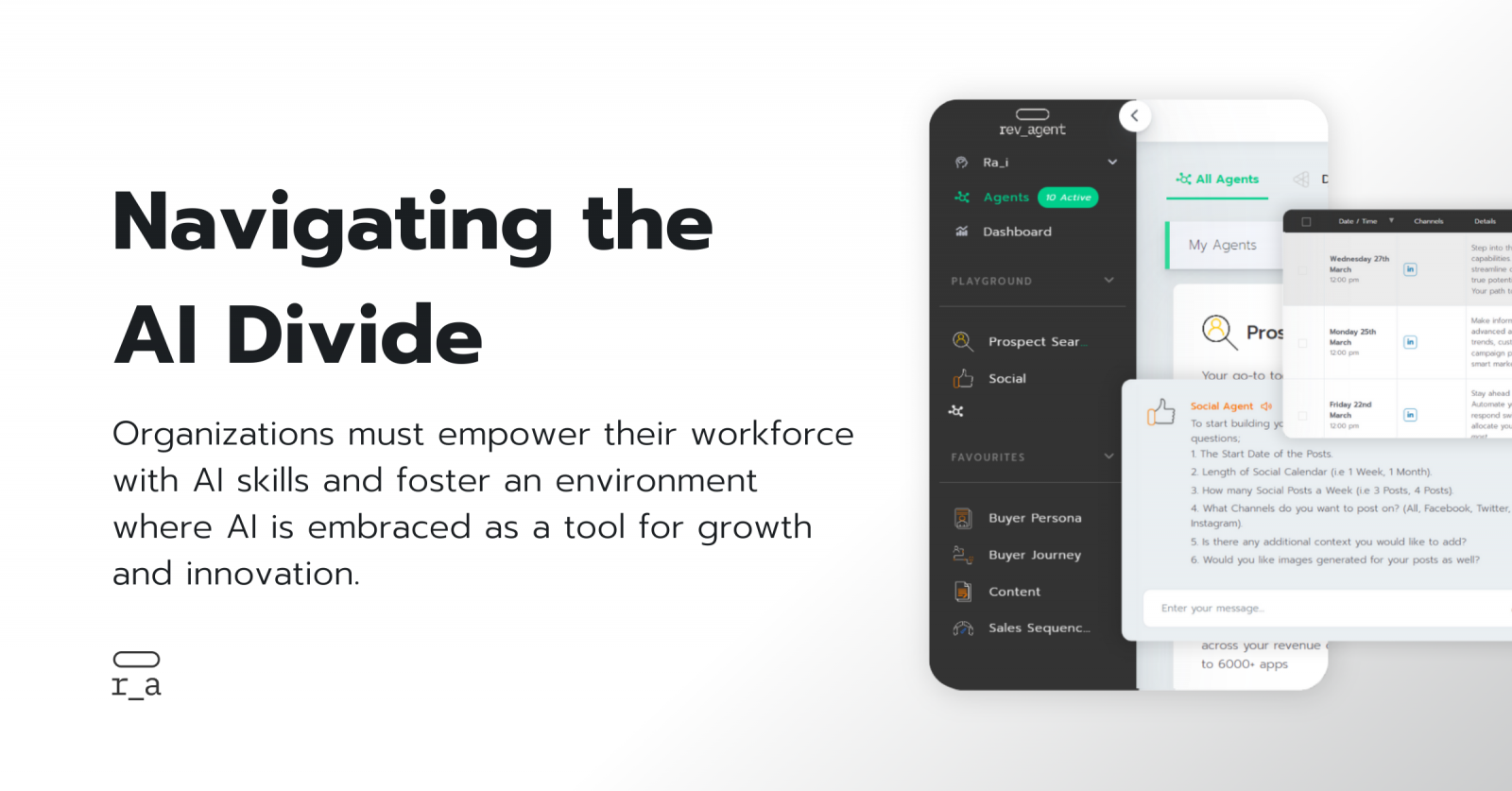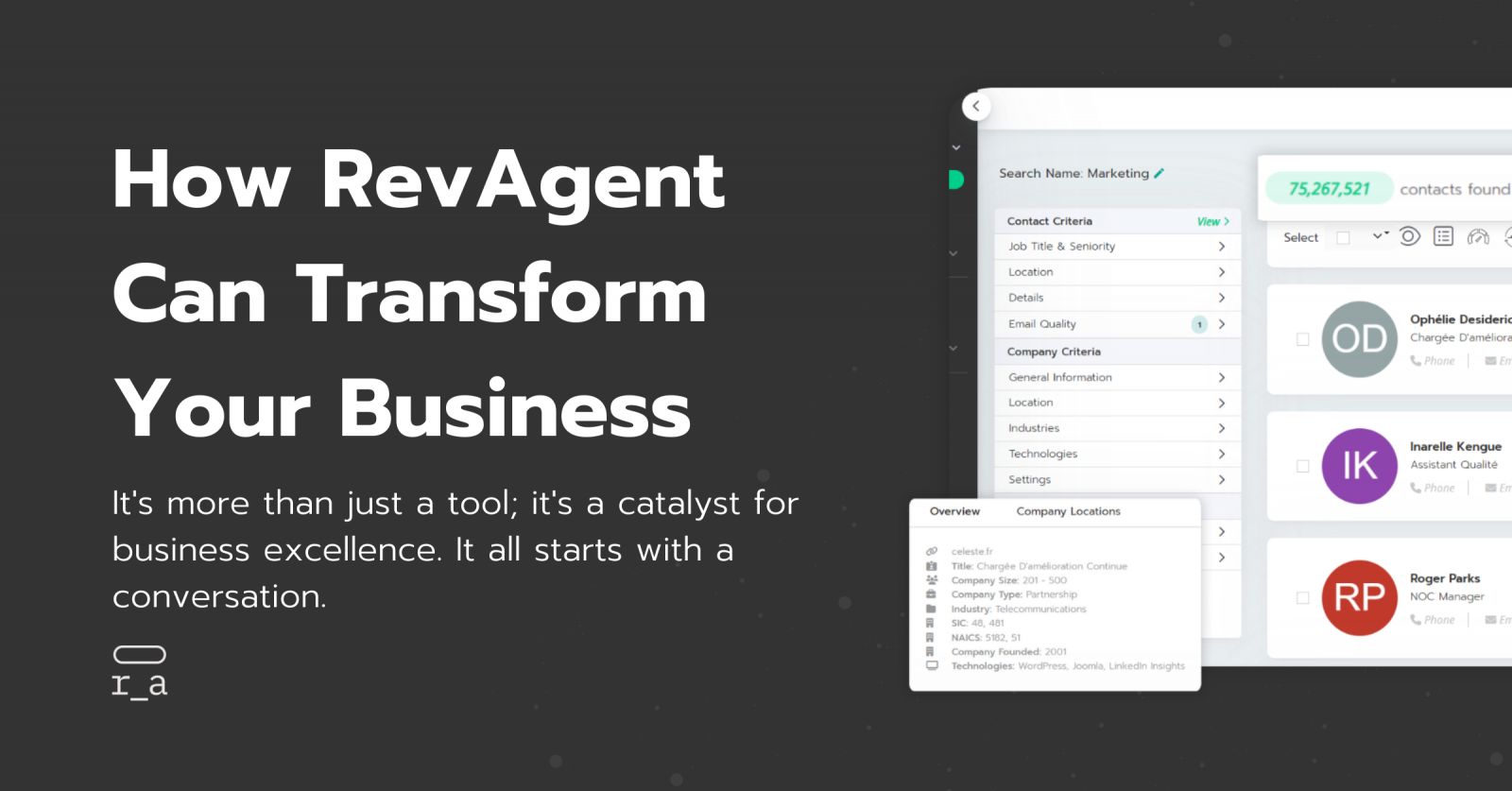Artificial Intelligence (AI) is undoubtedly one of the most transformative technologies of our time, with the potential to revolutionize industries and improve countless aspects of our lives. However, as AI continues to gain ground, concerns surrounding its implementation have also risen to the forefront. In our recent survey, we uncovered valuable insights into these concerns, shedding light on the challenges and opportunities that lie ahead in overcoming the AI concerns.
Data Privacy and Security: A Top Concern
Our survey highlighted that 24% of respondents express significant concerns regarding data privacy and security in AI implementation. This concern is well-founded, given that AI systems often rely on vast amounts of sensitive data to operate effectively, encompassing personal information and proprietary business data. To address this, organizations must prioritize robust data protection measures.
RevAgent plays a crucial role in this aspect, ensuring a secure environment through advanced encryption, robust access controls, and regular security audits. Complying with data privacy regulations such as GDPR or CCPA, RevAgent establishes trust by safeguarding sensitive information from unauthorized access or breaches.
The Skills Gap Challenge
Another noteworthy concern identified by 19% of respondents is the shortage of skilled personnel in the realm of AI. The rapid evolution of AI technologies makes finding individuals with the right expertise challenging, potentially hindering an organization's ability to implement and manage AI solutions effectively.
.png) RevAgent actively contributes to bridging this gap through comprehensive training and development programs. By upskilling existing staff and collaborating with educational institutions and industry associations, RevAgent ensures a continuous pipeline of AI talent, addressing the skills gap and empowering organizations with the necessary expertise for successful AI implementation.
RevAgent actively contributes to bridging this gap through comprehensive training and development programs. By upskilling existing staff and collaborating with educational institutions and industry associations, RevAgent ensures a continuous pipeline of AI talent, addressing the skills gap and empowering organizations with the necessary expertise for successful AI implementation.
Transparency and Explainability
Concerns about the transparency and explainability of AI systems are also valid. AI algorithms, especially deep learning models, are often seen as “black boxes” that make it challenging to understand their decision-making processes. This lack of transparency can lead to skepticism and distrust among users and stakeholders.
To address this challenge, organizations must emphasize transparency in their AI development practices. This involves the utilization of interpretable machine learning models, offering explicit explanations for decisions driven by AI, and maintaining openness about the data sources and algorithms employed. Transparency serves a dual purpose: it fosters trust among stakeholders and ensures adherence to regulatory requirements that mandate clear explanations, particularly in specific contexts..png)
RevAgent tackles this concern by prioritizing transparency in AI development. Employing interpretable machine learning models and providing clear explanations for AI-driven decisions, RevAgent demystifies decision-making processes, fostering trust and compliance with regulatory requirements.
Collaboration and Regulation
Addressing AI concerns is not solely the responsibility of individual organizations; it requires collaboration between industry leaders, government bodies, and technology experts. Regulators play a crucial role in establishing guidelines and standards that ensure responsible AI implementation.
The establishment of clear regulatory frameworks can help alleviate concerns related to data privacy, security, and ethical considerations. Organizations should proactively engage with regulators and contribute to the development of policies that strike a balance between fostering innovation and safeguarding society's interests.
.png)
RevAgent actively engages in this collaborative effort, contributing to the development of clear regulatory frameworks that ensure responsible AI implementation. By upholding guidelines and standards, RevAgent alleviates concerns related to data privacy, security, and ethical considerations, striking a balance between fostering innovation and safeguarding societal interests.
Conclusion: Embracing AI with Confidence
While concerns about AI implementation are valid, RevAgent emerges as a strategic partner, empowering organizations to embrace AI with confidence. By effectively addressing data privacy, bridging the skills gap, promoting transparency, and actively collaborating on regulatory frameworks, RevAgent provides a comprehensive solution to the challenges posed by AI concerns.
The future of AI, guided by RevAgent, holds promises of increased efficiency, improved decision-making, and innovation—a future where AI becomes a positive force, enhancing lives and shaping a technologically advanced world. Through a proactive and responsible approach to AI implementation, organizations, with the support of RevAgent, can pave the way for a brighter and more advanced future.
